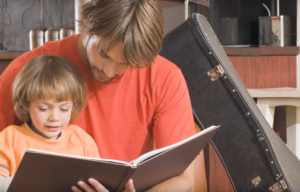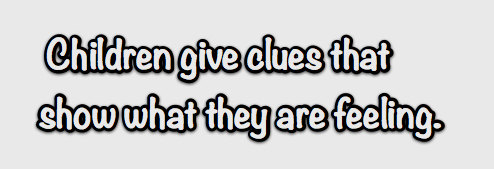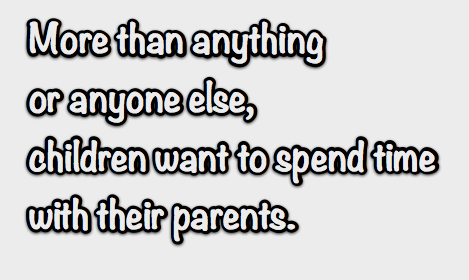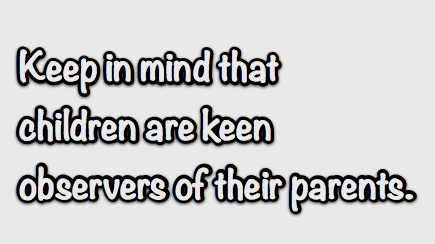
“It was the best of times, it was the worst of times, it was the age of wisdom, it was the age of foolishness …”
These opening lines to “A Tale of Two Cities” were written in 1859 by the British novelist Charles Dickens; they seem to work well for our current situation!
How are these the “best of times” you might ask?
A friend sent me a cartoon. In it eight dogs are sitting around a board room table. The CEO dog says, “Operation Covid-19 worked! All our humans are now staying home with us.”
Many children are probably thinking something similar. More than anything or anyone else, children want to spend time with their parents. For kids whose parents are no longer working away from home, these can be “the best of times.”

Many adults too may feel this way. Covid-19 provides a reprieve from the rat race that is their “normal” life. These adults typically commute long distances, and experience a variety of stressors all day long. “Normal” life typically includes getting themselves ready for work, preparing their kids for daycare or school, sitting in traffic jams, dropping off the kids, rushing to work, meeting the challenges of work all day long, rushing back to pick up the kids and facing the traffic again as they do it all backwards, often stopping to pick up groceries. Back home, after their long day they need to figure out dinner, bathe the kids and get them to bed.

These are however “the worst of times” for many. They worry about loved ones who might become ill, are living with economic uncertainty, and often, food insecurity. They may be living in an unsafe environment and overwhelmed by the responsibilities of caring for children 100% of the time.
Life can be very stressful for these families especially if they have a child or children with special needs and none of the exterior supports they typically count on to get through the week.
A colleague recently wrote how much she worries about parents who are home with young children and expected to work full-time from home! I do hope that employers who are reading this can adjust their expectations for these working parents and take away some of their stress.

When every day is like a weekend, young children are confused. Usually their parents spend time with them over the weekend but here, their parents are home but focused on their computer screens and unable to respond lovingly to them. It is no wonder parents report seeing their children “act out” or “regress” into behaviours they had left behind months ago, such as bed-wetting.
In the cartoon mentioned above, with the dogs sitting around the board room table and delighted that their strategy worked to get their humans to stay home with them, there is also a cat at the other end of the board room table. The cat says, “Why was my department not consulted about this?” The cat’s words highlight another challenge that many are facing. Some of us can go along with what is happening and not worry too much about uncertainty. Most people however, have difficulty with uncertainty. And those who are excellent planners find themselves thrust into a situation they did not choose and cannot control. This feeling of lack of control can be highly stressful.
From a young age I benefited from the wisdom of my father who survived the Second World War and a prisoner of war camp. He taught me that the only thing we can control is our attitude. One of his favourite questions was, “What is the alternative?” Thinking this way has helped me throughout life and in situations beyond my control.
When I was 18 I read Viktor Frankl’s book, “Man’s Search for Meaning.” I read it again after my young husband died and our children were 2 and 4 years old. I was bereft and fearful that I would not be able to raise our children on my own. Frankl stressed,
“Everything can be taken from a man (read, human being) but one thing: the last of the human freedoms—to choose one’s attitude in any given set of circumstances, to choose one’s own way.”
This is easier said than done, especially for adults who did not have a wise and nurturing dad like mine and whose childhoods were characterized by “ACE’s,” Adverse Childhood Experiences. Yet human beings are surprisingly resilient and Covid-19 illustrates this. Testimonials from parents reveal that they are connecting with their children and teaching them life skills.

As adults it is helpful for us to try to understand the perspective of our children. Children see their lives turned topsy-turvy. Things they could always do before are no longer permitted. They can perhaps see a beloved grandparent outside, and at 2 metres distance, but they can no longer find refuge in their arms. Nor can they cuddle up for story time with them. My own grandsons who live in the same city as I do and who are now 8 ½, 7 and 4 ½ understand these things intellectually, but look forlorn when they are reminded that there can be no physical contact. They come running up to me on the occasions where we meet outside – and have to “put on the brakes” as they get close and are reminded that “sorry, you cannot come closer.”

Fortunately, there are still lots of wonderful opportunities during this time of Covid-19 for all of us.
Those of you who are familiar with our KidCareCanada resources know that we focus on social and emotional health and the things that parents and caregivers can do to promote this.
In our resources we speak about the primal importance of connection and of relationships, and the need for children to feel safe. Covid-19 presents an ideal opportunity for connection.
What can help children feel safe, especially if parents are stressed?
Creating some predictability in your child’s life, some routine, can be especially helpful. It does not need to be strictly adhered to. Depending on the age of the child you can make a physical schedule with words and images they might draw, so they can see what to expect. As much as possible, involve your child in creating the schedule, and post it so that you and they can easily view it.

As you ‘think through the day’ with your child to create your schedule, you may want to include “music.” One of the wonders of parenthood is that no matter how poorly a parent thinks they sing, their children love their voice and singing with them. They can sing songs with motions, well-known songs or silly made-up songs that make everyone giggle. Some parents really are musical and can also play instruments. Most parents can tap on an empty container like a drum or dance with their child to music. Sharing music you love enhances your child’s life and your relationship.
Similarly, doing “art” or “projects” with your child reaps benefits far beyond the items you are creating.
Isolation is a time for physical connection with your children and lots of listening – for words, behaviours and actions. “Serve and return” is especially valuable at this time – with infants and children of ALL ages. Children give clues that show what they are feeling even if they cannot express it in words. We can respond with words that show we “hear” them.
Some of the clues are “behavioural issues” — melt downs and temper tantrums. A mother and psychotherapist/author I admire is Dr. Tina Payne Bryson. Along with Dr. Dan Siegel she wrote the book, “No Drama Discipline”. She explains why “time outs” might be helpful for parents but are not helpful for children. Instead, this is what she recommends when children are having tantrums:
- Above all, stay calm
- View the meltdown or temper tantrum as a great opportunity to connect and teach skill-building
- Keep in mind that the original meaning of “discipline” is teaching/training
- The goal of discipline is to help children build skills so that they can be self-disciplined. Children need to be taught these skills
- Children cannot learn during a melt-down or if the parents are angry or critical
- When parents are calm and children are “non-reactive” i.e., in a state of mind where they can hear and learn, parents can comfort their child. This frequently requires a change of attitude
- What is this change in attitude? Parents need to consider the child as “hurt” and needing to be comforted
- If possible, the parent assumes a position that is physically lower than the young child’s eyes. (This removes any feelings of threat and helps the child feel safe)
- Using a gentle and compassionate voice (as if the child were physically hurt) the parent can say, “Come here” and envelope the child in their arms, “Tell me what happened.” They can say something empathetic and soothing, that paraphrases what the child said, or describes the child’s emotional state, “You were looking at that book when your brother took it from you.” “You were so angry.” Or “You wanted Daddy to play with you and he said he had to work. You felt he didn’t want to play with you”
The goal is to achieve two things:
- Connect with the child
- Soothe the child
If in the first example the younger brother bit his older brother hard when the brother took the book away, once the event is over and the child is calm, the parent can say, “You really hurt your brother.” And let this sink in. Chances are the child will now feel bad about that. It is okay for the child to feel this. It is part of the learning process. The parent might ask, “What can you do to help your brother feel better?”
As Dr. Tina Payne Bryson explains, connection is the secret to a happy life. So is letting children know that you are ‘there’ for them.
Sometimes, parents of teenagers ask me how to connect with their kids. Sadly, by the time a child is a teenager it can be too late – or very challenging — to create a connection. Connecting starts at birth and continues throughout life. The way a parent connects with their two year old sets the stage for the relationship they will have with their child during the teen years. That is one of the reasons early nurturing is so very important.
What else can parents do to help their children feel safe during Covid-19? Depending on the age and abilities of the child parents can explain, at the child’s level, facts about the virus and especially, the steps that are being taken by leaders in the government and public health to manage it.

Keep in mind that children are keen observers of their parents. We may say things to them, but mostly, they watch us. It really is “what we do, not what we say.” It is good to keep in mind that not only is Covid-19 highly contagious, but so are emotions. Most parents are feeling the strain of life at this time, so sharing your feelings – again, at a level your child will understand, and including reassuring messages – will help your child relax and feel secure.
Some of the readers of this article know that I used to live in France. In fact, my children were born there. There was a radio program I listened to with Francoise Dolto, a well-known pediatrician and child psychoanalyst. One day she told the story of a child in the back seat of the family car during a road trip. One parent casually mentioned to the other that they needed to get gas. Little did they realize that in the back seat their child was becoming more and more anxious, until the family reached a gas station some time later. This story is a good reminder that children can overhear their parents’ conversation and without a full understanding of the context develop anxieties that seem a mystery to the parents.
As our Provincial Medical Officer, Dr. Bonnie Henry, reminds us, fresh air and exercise are especially helpful during Covid-19. Parents know this. When their children are well fed, have enough sleep and physical activities, especially outdoors, they tend to be calm. This is also the ideal time for them to learn.
Children learn through play. Other opportunities that Covid-19 presents are for children to have time for imaginative play on their own, with siblings or with you. And it is ideal for story time. Cuddle up with your child and a book. Depending on the child’s age – you can point at pictures and engage them in back and forth conversation, or make up stories about the pictures. You can read some of the words and talk with the child, or read every word – some kids love this and even memorize the words. Reading to children is one of the best things you can do for them – and you.
Covid-19 also presents us with the opportunity to teach our children some life skills. These can include planting seeds, baking, learning to clean (with safe products such as baking soda and white vinegar) and doing other regular chores.

Most parents do not plan to be pre-school or elementary teachers, yet many find themselves in these roles. The difficulty is compounded if you are trying to work from home! Or if you are the parent of a child who is not neuro-typical and the entire care of your child falls solely on you.
Beyond a doubt you love your kids, but you probably did not sign up to be with them 100% of the time, day after day.
This is where compassion comes in. Yes, for your children who are possibly confused by the change in their everyday routines, but also for you!
Every parent needs a break. Too much stress is not good for children and it isn’t good for their parents either!
So what can you do? Hopefully, you can enjoy exercise in the out-of-doors too, where you can do some deep and relaxing breathing. Sometimes, just counting breaths in, holding your breath and counting out – and repeating this several times, will activate your parasympathetic system and help you to feel calm. I sometimes breathe in for a count of four, hold my breath for a count of seven and breathe out for a count of eight. Others breathe in for a count of four, hold their breath for a count of four and breathe out for a count of eight. No doubt you will find good breathing exercises online.
Many supporters of KidCareCanada will be shocked to hear me say that you may need to plonk your child in front of a screen for ½ hour so that you can breathe, make a cup of tea or call a dear friend or family member. If possible, choose a program that it is age appropriate.
You do not want to leave young children in front of the TV all day.
As the psychologist and author, Susan Pinker, points out in her book, “The Village Effect: how face-to-face contact can make us healthier and happier” (yes it is ironic that I am reading this book at this time!) about 1/3 of parents think that using devices is good for their child’s brain and development. In response, Dr. Pinker reports that “we know from the latest studies in developmental psychology, neuroscience and social robotics that much of early learning is driven by the motivation to connect face-to-face.” And, “For a young child, learning is not a passive act, stripped of human contact. Screens just don’t do the trick.” This is why it is wise to keep screen time to a minimum with young children. Again according to Dr. Pinker, “You may end up with more behavioral and social problems if your children watch too much TV.” The results are “sobering” and “startling” she says, from studies with children and TV watching. In reporting on the study of a University of Montreal psychology professor, Dr. Linda Pagani, Dr. Pinker explained, “Every additional hour of TV exposure among toddlers corresponded to a future decrease in classroom engagement, less success at math, increased victimization by classmates, a more sedentary lifestyle, higher consumption of junk food, and ultimately a higher body mass index.” That study looked at the hours of television watched each week by more than a thousand randomly selected two- and four-year-olds and then followed up on how those children were doing at the age of ten. She added, “Each hour of TV watched at 29 months of age increased the odds that the child would become more detached and unengaged as a fourth-grade student.”
And in case you need more convincing that letting young children spend hours in front of the TV does not improve their language or other skills, a University of Virginia study in 2011 compared what happened to four year olds who watched a fast-paced TV show called SpongeBobSquarePants that has “frenetic pacing” with the slower-paced Caillou and children in a control group who drew pictures instead of watching TV. The results showed that the children who watched the fast-paced TV show “fared significantly worse on the tests of planning and self-control than those in the drawing group and somewhat worse than those in the slower-paced group.” These were immediate and not long-term effects. Still, the study suggests why you might end up with a child who is whinier after watching TV!
Researcher Dr. Dimitri Christakis, the director of Seattle Children’s Research Insitute’s Center for Child Health, Behavior and Development and pediatrician and professor of pediatrics, explains the relationship between screen time and poor language skills. He and his fellow researchers found that “for each additional hour of TV toddlers watched before the age of three, there was a 9 percent increased risk of attention problems at age seven.” Says Dr. Christakis, “Most parents think screen time is good for the child. They need to think again because there is no evidence of that.”
Nonetheless, short-term TV watching of a children’s show will likely not harm your children for the rest of their lives. And it can “save” a parent who desperately needs a break. The benefits definitely outweigh the risks!

If you are worrying about your parenting this might be an opportune time to remind you that no children need to have “perfect” parents. In fact, even if it were possible, it would not be good for them.
I encourage you to read this blog (link below) by Peter Gray, PhD, professor at Boston College. He provides his insights into the book written by Bruno Bettelheim, “A Good Enough Parent”. Below are some of their key points:
- Good enough parents do not think of themselves as the producers, creators or shapers of their children
- What we should do is strive to get to know our child so as to understand the child’s needs and wants
- Above all we need to see our children as being equally deserving of happiness and the opportunity to create their own goals as we are
- We need to respect the child and their feelings, and try to understand the child’s view
- Perfectionism leads to a culture of blame and shame. We need to avoid both of these
- Good enough parents are more concerned for the child’s experience of childhood than with the child’s future as an adult. They do not try to prove to the world that they are wonderful parents
- Children need to feel supported rather than controlled
- Good enough parents allow their children to make mistakes and to fail, because they know that mistakes and failures are inevitable components of learning
- The primary tools of good enough parenting are conscious reflection, maturity and empathy
- Good enough parents are confident that their good enough parenting is good enough
As I read through the article my reflection was that it is perhaps easier for a grandparent to approach childhood this way than it is for a parent?
I particularly like the comment, “Good enough parents are more concerned for the child’s experience of childhood than with the child’s future as an adult.”
Are we making this time of physical isolation “the best of times” for our children? I wonder what they will remember of Covid-19. They may not recall details, but chances are they will remember their emotions of this experience.

In her book, “No Drama Discipline,” Dr. Tina Payne Bryson encourages parents to impart in their children the message, “When you are stressed out, I’m here for you.” I hope this is the message all of our children take from Covid-19.
Warm regards to all,
Estelle Paget, Executive Director, KidCareCanada Society
PS You will find some valuable resources here to promote your child’s mental health: https://smho-smso.ca/blog/12-easy-and-fun-mental-health-practices-to-try-with-your-children-at-home/
Note that you can see the cover letter for the news item that was sent to our subscribers here:
https://mailchi.mp/d5ff02ddaa23/covid-19-the-best-of-times-for-some-the-worst-of-times-for-others
And you can sign up for our Newsletter here:
https://kidcarecanada.us5.list-manage.com/subscribe/post?u=3840fc5461238007cf5214f56&id=0986fe48ab
